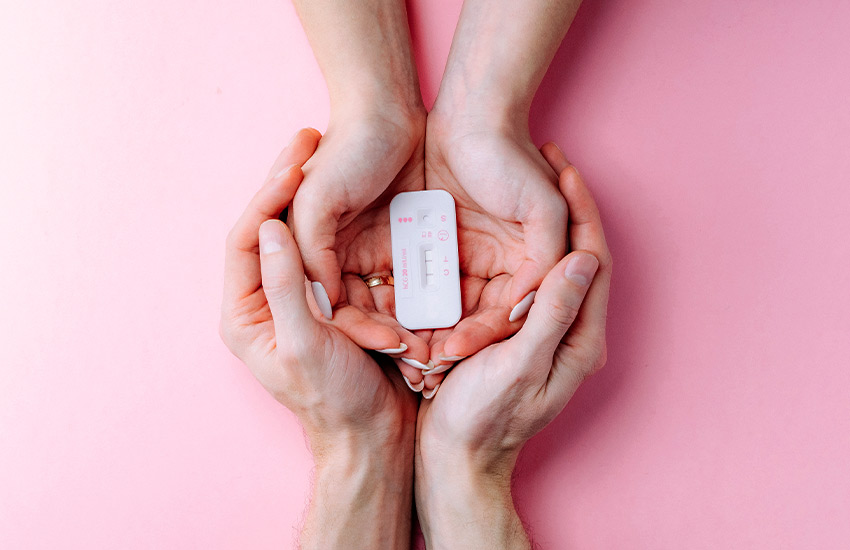When it comes to fertility and ovulation, natural methods can play a significant role in enhancing your chances. Understanding and incorporating these methods into your lifestyle can lead to more balanced hormones and improved reproductive health.
In this blog, we will explore several key areas that impact ovulation: sleep, exercise, diet, supplements, avoiding harmful substances, managing stress, and regular medical checkups. Each of these factors contributes to creating an optimal environment for ovulation, ensuring that your body functions at its best.
By adopting these natural methods, you can take proactive steps to support your reproductive health. Better sleep patterns, regular physical activity, a balanced diet, appropriate supplements, avoiding harmful substances, managing stress, and staying on top of medical checkups are all effective strategies for increasing your chances of ovulation.
The Importance of Sleep
Good sleep is crucial for maintaining hormonal balance, which is essential for ovulation. When you get adequate rest, your body can regulate the production of hormones, including those that influence your menstrual cycle and ovulation. Sleep impacts the levels of various hormones, such as cortisol, which can affect your reproductive system if imbalanced.
Women who sleep an average of 7-9 hours each night have 20% higher levels of follicle-stimulating hormone (FSH) compared to those who regularly sleep for shorter periods. FSH plays a critical role in the development of eggs in the ovaries, and higher levels can enhance your chances of ovulation.
Beyond its hormonal benefits, sleep is also vital for managing stress and maintaining emotional well-being. Adequate sleep helps you cope with daily stressors and reduces anxiety, both of which can negatively impact your reproductive health. By ensuring a good night’s sleep, you support your body’s ability to function optimally, creating a more favourable environment for ovulation.
Exercise and Physical Activity
Regular exercise is another vital component for enhancing your chances of ovulation. One of the primary benefits of physical activity is weight maintenance. Maintaining a healthy weight is crucial for hormonal balance, as excess body fat can lead to an overproduction of oestrogen, which can disrupt ovulation. By engaging in regular exercise, you help your body regulate weight, which supports a more balanced hormonal environment.
Exercise also plays a significant role in reducing the risk of insulin resistance and type 2 diabetes. Insulin resistance can interfere with ovulation by affecting hormone levels. Physical activity improves your body’s sensitivity to insulin, ensuring that your blood sugar levels remain stable. This, in turn, helps regulate your menstrual cycle and supports regular ovulation.
In addition to its physical benefits, exercise is an excellent way to reduce stress and anxiety. High-stress levels can lead to an increase in cortisol, a hormone that can disrupt your reproductive hormones. By incorporating regular physical activity into your routine, you can lower your stress levels and promote a sense of well-being. Activities such as walking, yoga, and swimming are particularly effective in reducing stress while supporting overall health.
By prioritising regular exercise, you not only enhance your physical health but also create a more supportive environment for ovulation.
Healthy Diet
Maintaining a healthy weight through a balanced diet supports regular ovulation. Excess weight can cause hormonal imbalances, while being underweight can disrupt hormone production. Both conditions can interfere with ovulation.
Key nutrients for reproductive health include:
- Folic Acid: Essential for cell growth and ovulation.
- Vitamin D: Supports progesterone and oestrogen production.
- Omega-3 Fatty Acids: Reduce inflammation and support hormone production.
- Iron: Prevents anaemia and supports reproductive health.
- Antioxidants: Protect cells and support reproductive function.
Incorporate fruits, vegetables, whole grains, lean proteins, and healthy fats into your diet to maintain hormonal balance and promote healthy ovulation.
Avoiding Harmful Substances
Avoiding harmful substances is crucial for hormonal balance and ovulation. Excess sugar can disrupt insulin levels, leading to insulin resistance and affecting hormonal balance. Alcohol increases cortisol and affects oestrogen levels, disrupting your menstrual cycle and ovulation. Additionally, recreational drugs and smoking can negatively impact your menstrual cycle and fertility. Limiting these substances helps maintain a healthy reproductive system and supports ovulation.
Managing Stress
Managing stress is crucial for hormonal balance and ovulation. High stress levels cause cortisol spikes, disrupting appetite, metabolism, and weight, which can affect your menstrual cycle. To reduce stress, try mindfulness practices like meditation and deep breathing, or yoga, which combine physical activity with relaxation. Regular exercise, even light activities like walking, also helps lower stress. By managing stress effectively, you support hormonal balance and improve your chances of ovulation.
Conclusion
Adopting natural methods can greatly improve your chances of ovulation. Focus on getting adequate sleep, staying physically active, eating a balanced diet, and managing stress effectively. Limiting harmful substances and using appropriate supplements can also help maintain hormonal balance. Don’t forget the importance of regular checkups with your healthcare provider for tailored advice and treatment.
At Fyne IVF, we specialise in providing tailored fertility solutions. Our services include thorough fertility evaluations, advanced treatments, and fertility preservation options. With a success rate of 75-82%, our team is committed to offering compassionate and effective care. Schedule a consultation at Fyne IVF and let us support you on your journey to parenthood.

